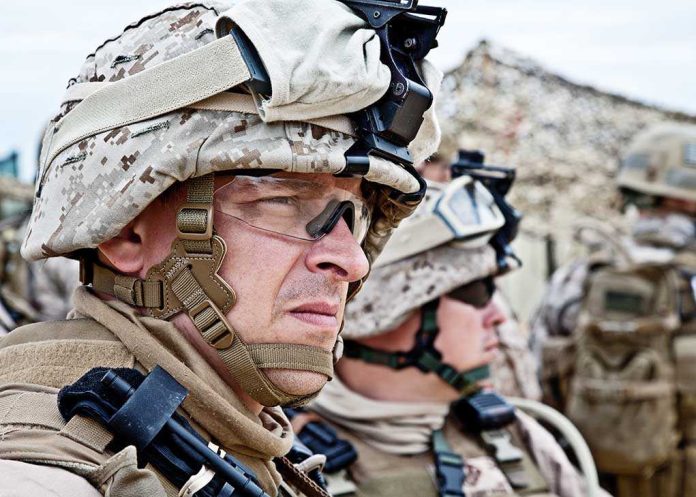
As Venezuela deploys 15,000 troops to its border and US warships arrive in the Caribbean, the risk of open conflict rises dramatically—threatening American security interests and highlighting the failures of previous leftist appeasement on the world stage.
Story Snapshot
- Venezuela masses 15,000 troops at the Colombia border while mobilizing warships and drones for coastal defense.
- The Trump administration sends three US warships and plans to deploy 4,000 Marines, escalating pressure on the Maduro regime.
- Washington doubles the bounty for Venezuelan President Maduro’s capture to $50 million, citing narco-terrorism charges.
- Diplomatic tensions surge, with both nations denouncing each other’s actions at the United Nations and preparing for potential confrontation.
Escalation on the Colombia-Venezuela Border Raises Security Stakes
On August 25, 2025, Venezuela announced the deployment of 15,000 troops to its border with Colombia, accompanied by naval vessels and surveillance drones patrolling the nation’s coastline. President Nicolas Maduro framed the move as a defense against foreign intervention, while the United States, under President Trump, cited persistent allegations of Venezuelan narco-terrorism and criminal leadership as justification for increased military presence. This rapid escalation has reignited concerns over regional stability and the effectiveness of US deterrence after years of globalist policies left American interests vulnerable.
Trump administration responded by dispatching three guided-missile destroyers to waters off Venezuela, coupled with announced plans to send 4,000 Marines to the region. This show of force comes as Washington doubled its bounty for Maduro’s capture to $50 million, ramping up pressure on a regime long accused by US authorities of running a cocaine trafficking cartel. Venezuela’s mobilization of troops and military assets reflects not only a reaction to American moves but also a calculated effort to project strength amid mounting economic and political isolation. The Colombia-Venezuela border, notorious for drug smuggling and armed conflict, now stands as a flashpoint where rival powers test resolve and strategy.
Diplomatic Fallout and Military Posturing
Tensions reached the international stage as Venezuela denounced US military threats at the United Nations, accusing Washington of violating national sovereignty and inciting aggression. In parallel, the Venezuelan Defense Ministry announced the deployment of additional naval vessels and drones, reinforcing claims that the nation is prepared to defend itself against any incursion. Both sides maintain heightened military readiness, and as of August 27, direct confrontation has been avoided. However, the risk of miscalculation or accidental escalation remains high, with border communities and international shipping routes caught in the crosshairs of potential conflict.
Maduro’s government, backed by military leaders like Diosdado Cabello, insists it is waging an effective fight against drug cartels, reporting over 53 tons of drugs seized so far this year. Yet US officials and many security analysts are skeptical, viewing these claims as attempts to deflect from regime corruption and criminality. The Trump administration’s aggressive posture signals a return to prioritizing American security and constitutional values, as opposed to the permissive policies of previous years that emboldened adversaries and undermined the rule of law.
Regional and Global Implications
The unfolding crisis has immediate consequences for Colombia, a key US ally, as border instability disrupts trade and threatens to spill over into Colombian territory. Economically, the standoff jeopardizes oil exports and compounds the hardships of local populations already suffering under Venezuela’s economic collapse. Socially, the increased military presence heightens the risk of migration flows and refugee crises, while politically, both the US and Venezuela have doubled down on hardline rhetoric. The broader region watches closely, aware that any escalation could set a dangerous precedent for how the US responds to hostile regimes and illicit networks in the Western Hemisphere.
MAJOR TENSION: Venezuela Sends 15,000 Troops To Its Border As U.S. Warships Arrive In The Southern Caribbean https://t.co/peArMOWNkz #Push via @DailyNoahNews
— Cathy Chats (@CathyChats1) August 28, 2025
Expert analysis underscores the dual nature of current US policy: while some see the military buildup as an essential deterrent and overdue correction to years of ineffective, appeasement-driven diplomacy, others warn of the risks of unintended conflict or humanitarian fallout. The Trump administration’s actions reflect a clear commitment to defending American interests and upholding constitutional principles abroad, standing in sharp contrast to the globalist, open-border approaches that allowed threats to fester in America’s own backyard. As events continue to unfold, the world will watch to see whether forceful deterrence or diplomatic restraint prevails in this high-stakes confrontation.
Sources:
Venezuela deploys 15,000 troops to Colombia border as US pressure mounts (Le Monde)
Venezuela deploys warships, US sends destroyers to region (CBS News)



